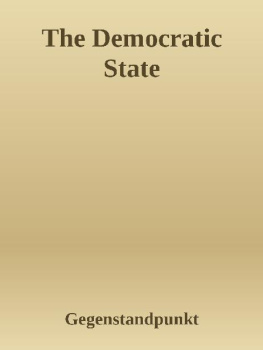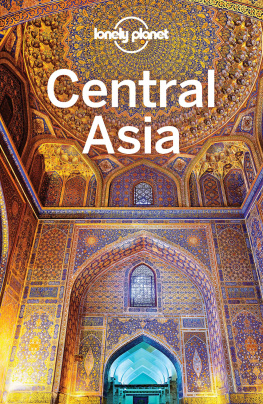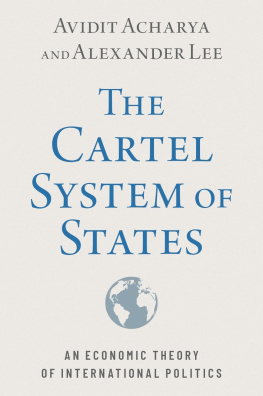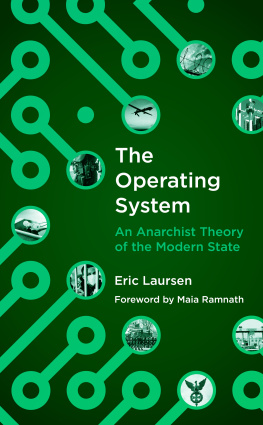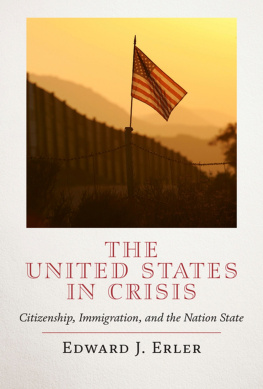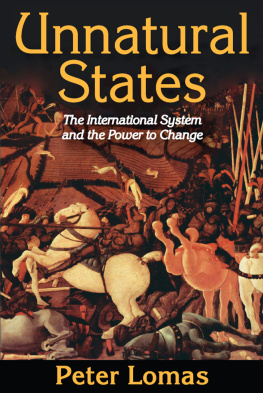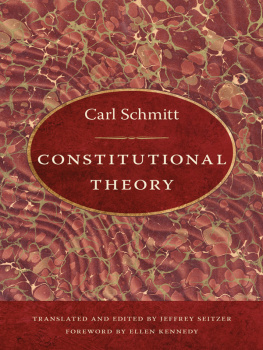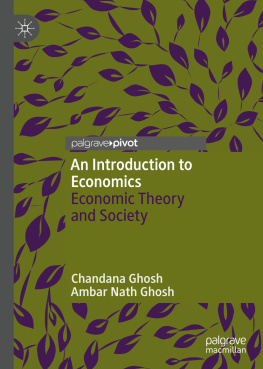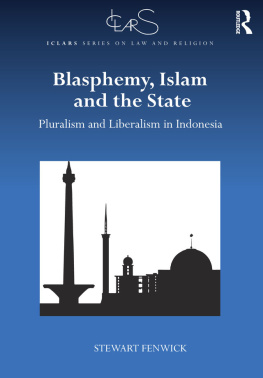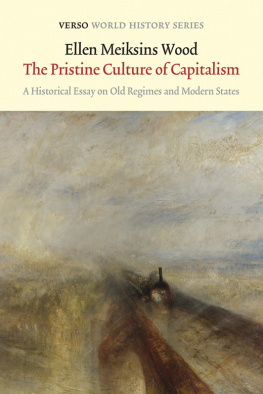Table of Contents
Democratic State: Introduction
This book explains something. Bourgeois (capitalist) societies, in which the production of wealth takes place as the result of economic competition with private property, are ruled by states. Why? What is the reason for the existence of such states? What purpose do they serve? We actually answer these questions here!
Some left-wing professors would call us arrogant for claiming to have figured out what bourgeois states and democracy are all about, since their chief discovery in this field is how complicated it all is. Some go so far as to deny even the possibility of completing the theory of the state, since each state has a different historical development. As if the general cannot be found in the particular! What else is a theory? Each of the different states is in fact a state, as the name implies. They have common principles, and these principles are what a theory explains. The professors can examine the differences between, say, English and German law, or between Italian and German social provisions, until the cows come home. But as long as they insist on denying the concepts of law and social state in general, the particular analysis of Germany, Italy or any other state has to come out wrong. And wrong it comes out without fail!
Some other leftist state theoreticians, reading here to find how we have answered their favorite questions, should take heed. We dont even bother to ask them! What could the state do to? Or, What prevents the state from doing? These inquiries only serve to announce an ideological concern for how the state should be, not for how it is. The practical activity of leftists, to try to improve the alleged deficiencies of society, goes hand in hand with their theories consisting of lists of structural and functional problems of the state. When they ultimately proclaim the dialectics between reform and revolution, we have to state flat out that there is absolutely nothing revolutionary in modifying the state to improve its functioning, and nothing dialectical either. Neither the dialectical reforms nor the theory justifying them can ever help any proletarian. And finally, we know of no cabal of monopolists preventing the state from accomplishing its alleged mission, nor do we blame the fiscal crisis of the state. Its simply that we do not know of any good deeds for the state to perform. Actually, there are none!
Thus our explanation is objective. We dont approach the theory of the state from ideals or morality, from what it is imagined states ought to be. We just say what the state is. There also exists a plethora of ideologies about the state, thinking derived from a false consciousness of political life which takes certain aspects for granted. We relegate these to remarks at the end of each chapter. Also at the end of each chapter are to be found some brief historical remarks, which are intended only to dispel any lingering notion that anything fought for must be good. They are not intended to make the explanation of the state historical, since it isnt.
One last introductory word. The term bourgeois is not used here to mean lacking in refinement or elegance. It refers only to the formation, or constitution of the dominant societies of the current epoch, in contrast with, say, the feudal epoch. Other terms used in a special sense are discussed in the text where they occur.
Chapter 1: Freedom and equality Private property Abstract free will
The bourgeois state (i.e., the modern democratic state) is the political power over a capitalistic society. It forces its rule on all of the competitors in this mode of production without regard to their natural and social differences, thereby allowing them to pursue their conflicting particular interests. This is what equality and freedom are, nothing else. The state obliges its citizens to respect private property in their economic competition. It forces them to recognize that some people have the wealth of society at their disposal while others are excluded from it, and to base their economic actions on this principle. In pursuing their individual advantage the members of a capitalistic society inevitably harm each other, so that they require a power removed from economic life to guarantee respect for person and property. They supplement their negative, competitive relation to each other by jointly submitting to a power that curtails their private interests. As they go about their economic business, they are at the same time political citizens. They want state rule because they can pursue their private interests only by simultaneously abstracting from them. The bourgeois state is thus the abstract free will of its citizens that has taken on a form independent of them.
a) How competitors become free and equal citizens
This first determination of what the state is, its conception in the abstract, contains the central reason why this authority exists, and thus also the central purpose that it pursues. Before turning to the specific ways in which the state relates to its citizens, one can already see from this abstract formulation that freedom and equality are hardly an idyllic matter. Firstly, they owe their existence to economic conflicts and, secondly, they are aimed at maintaining these conflicts by means of the states monopoly on force. The state uses its power to keep the capitalist economy running, but even without examining this mode of production one can see that this state is a class state. By subjecting everyone equally, it perpetuates the differences that exist between them. There is consequently no doubt about how it benefits the various competitors of a capitalist mode of production.
By treating citizens equally the state guarantees their freedom, which consists in nothing but the not-so-kind permission to try to get hold of some part of the wealth of society with whatever economic resources they may or may not have, while respecting all the other citizens who are doing the same thing at their expense, against them. It is for the sake of this freedom that they need the state, since without it they could not make use of their resources at all. From their practical point of view, state power is the condition for free competition. They thus want to be recognized as citizens of a state because their economic interests force them to.
The bond between all citizens of the state, their common political will, is the result of a forced act of volition on the part of each individual who, in order to reach his or her goal of private advantage, also participates in an abstract and general will. The separation of bourgeois society and the political state necessarily appears as a separation of the political member of bourgeois society, the citizen, from bourgeois society, his own actual, empirical reality, because as an idealist of the state he is a being who is completely distinct, different from, and opposed to his own reality (Marx, Critique of Hegels Philosophy of Right, Cambridge University Press 1970, p.79). It is no secret how this effort in abstraction has different results for the various characters involved in the capitalist mode of production, how and for whom the state acts forcefully as an instrument. The subjection of everyone to state power is necessarily to the advantage of those citizens who are already advantaged economically. The following chapters will therefore show what the state demands from and allows the various economic classes as a consequence of making free competition its business.

